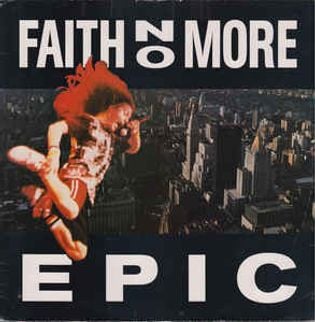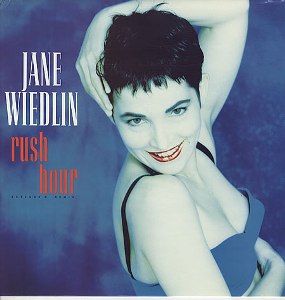 Billy Idol’s “White Wedding” didn’t just roar out of the speakers—it strutted, snarled, and smirked. Released in 1982, this genre-defying anthem served as the defining moment that established Idol as more than just a sneering face from the punk scene—it made him a new kind of pop star, one with leather pants, bleached hair, a punk soul, and MTV magnetism. As a song, “White Wedding” is both a critique and a celebration, a paradox dressed in black leather. It takes the concept of marriage, traditionally seen as the ultimate expression of romance and stability, and spins it into a feverish, gothic fever dream. With its haunting guitar riffs, ominous synths, and snarling vocals, it captured a strange new energy pulsing through the early 1980s: part punk residue, part new wave futurism, part glam swagger.
Billy Idol’s “White Wedding” didn’t just roar out of the speakers—it strutted, snarled, and smirked. Released in 1982, this genre-defying anthem served as the defining moment that established Idol as more than just a sneering face from the punk scene—it made him a new kind of pop star, one with leather pants, bleached hair, a punk soul, and MTV magnetism. As a song, “White Wedding” is both a critique and a celebration, a paradox dressed in black leather. It takes the concept of marriage, traditionally seen as the ultimate expression of romance and stability, and spins it into a feverish, gothic fever dream. With its haunting guitar riffs, ominous synths, and snarling vocals, it captured a strange new energy pulsing through the early 1980s: part punk residue, part new wave futurism, part glam swagger.
The track was written by Billy Idol—born William Broad—a former member of the British punk band Generation X. He had grown up in the swirling chaos of London’s punk explosion, watching as rebellion became fashion and music became a weapon. But Idol, clever and self-aware, saw where the wind was blowing. By the early ‘80s, punk had largely flamed out as a commercial force. What remained was its ethos, its attitude—and Idol, like a scavenger turned sorcerer, began folding that into something new. He moved to New York, teamed up with guitarist Steve Stevens, and started working on his debut solo record. “White Wedding” wasn’t the first single from that album—that was “Hot in the City”—but it became the song that people remembered. It was a wedding song for anarchists, a love song coated in menace, a ballad as sung by a vampire in a nightclub.
From the first moments of “White Wedding,” it’s clear that something unsettling is happening. The song begins with a slow, suspenseful buildup—Steve Stevens’ guitar whines like a siren approaching, while a faint electronic pulse keeps time. It feels like the prelude to violence, or maybe seduction, or both. Then comes Idol’s voice, deep and sarcastic: “Hey, little sister, what have you done?” It’s not an invitation—it’s an accusation. There’s venom in the delivery, but also something else: hurt, perhaps even betrayal. That ambiguity—Is he talking to a lover? A sibling? Himself?—gives the song its unsettling power.
The title “White Wedding” is intentionally ironic. Idol was never one to embrace institutions, and here he’s playing with the idea of purity, tradition, and social expectation. The white wedding is supposed to be sacred, beautiful, orderly. Idol turns it into something twisted. The refrain—“It’s a nice day to start again”—is repeated like a mantra, suggesting renewal, yes, but also rupture. You can’t start again unless you’re burning something down first. He turns the act of matrimony into a crucible of identity, rebellion, and reckoning.
Much of the song’s success lies in its arrangement. Steve Stevens’ guitar work is central—sharp, stinging, cinematic. It isn’t about technical flashiness but atmosphere. The riff is menacing yet catchy, like a snake that’s learned how to dance. Coupled with synthesizers that pulse like a dark heartbeat, the track builds and builds, creating an almost religious intensity. When Idol wails “There is nothing fair in this world / There is nothing safe in this world,” he sounds like a preacher at the altar of chaos, delivering a sermon of beautiful doom.
“White Wedding” is deeply theatrical, but never insincere. That’s part of what made Billy Idol so compelling in this era. He wore the trappings of rebellion—the sneer, the leather, the chains—but he also understood performance. He was a punk rock Elvis with a glam Mick Jagger twist, tailor-made for the dawning age of music television. And nowhere was that more obvious than in the song’s unforgettable music video. Directed by David Mallet, the video aired heavily on MTV and played like a gothic horror film meets a fashion show. It opens with a crucifix, a bride in black, glass shattering over faces, and Billy Idol performing with a mix of lust and contempt. There’s a moment where Idol forcefully jams a ring onto the bride’s finger as she recoils—an image of love as possession, ceremony as threat. MTV helped launch “White Wedding” into the mainstream, and the video remains one of the most iconic of the decade: disturbing, glamorous, and impossible to look away from.
Critics and fans alike were fascinated—and often confused. Was “White Wedding” an anti-marriage song? A rant against conformity? A personal story? In interviews, Idol clarified that he had written it after his sister got married while pregnant. He wasn’t invited. The “little sister” in the lyrics is, in fact, literal. But Idol also knew better than to reduce his work to autobiography. He encouraged the myths. The song wasn’t just about his sister’s marriage—it was about how society sells us stories of purity and perfection and then punishes us for not fitting into them. Idol was part of the generation that came of age disillusioned by the ‘60s idealism and ‘70s nihilism. “White Wedding” captured that jaded skepticism perfectly. He wasn’t attacking love—he was questioning the institution that so often reduces it to ceremony and symbolism.
Despite its dark tone, the song became one of Billy Idol’s most enduring hits. It didn’t sound like anything else on the radio at the time. It had the attitude of punk, the polish of new wave, the hooks of pop, and the heaviness of hard rock. It appealed to kids in eyeliner and leather, to metalheads and goths, to suburban teens looking for something dangerous. It reached No. 36 on the Billboard Hot 100 in 1983, long after its initial release, thanks in large part to MTV’s rotation. Over the years, its reputation only grew.
One of the song’s many ironies is that it has since become a staple at actual weddings—often played as a joke, sometimes as a beloved anthem of the alternative set. That contradiction is perfectly Idol. He never shied away from the edges, and he never asked to be understood on just one level. “White Wedding” is both satire and sincere scream. It’s possible to dance to it without understanding it, but once you listen closely, it reveals layers. It’s about betrayal, yes, but also identity. It’s about the cultural expectations we strap onto romance—and the damage those expectations can do. It’s romantic and anti-romantic all at once, like a blood-stained valentine.
Idol’s vocal performance is a masterclass in style. He doesn’t belt—he snarls. He whispers, growls, chants, and finally explodes into a yelp of fury. He uses space and silence as weapons. His phrasing is half-spoken, half-sung, a mixture of anger and seduction. He doesn’t just sing the song—he performs it, like a monologue at a rock opera’s climax. There’s nothing passive in his delivery. Every word feels deliberate, dangerous.
The song’s influence is hard to quantify but impossible to ignore. It opened the door for a wave of artists who would embrace theatricality, darkness, and genre fusion. Marilyn Manson, Nine Inch Nails, Garbage, and even bands like HIM owe a debt to the atmosphere “White Wedding” created. It proved that rock could be cinematic without losing its bite. It also helped blur the line between punk credibility and pop stardom. Idol showed that you could be both a snarling rebel and a chart-topping heartthrob. He made it cool to be dangerous, and “White Wedding” was his calling card.
Over time, “White Wedding” has taken on almost mythic status. It’s been covered, parodied, remixed, and recontextualized in everything from movies to video games. But unlike many hits of its era, it has never become a relic. It still sounds fresh, still sounds defiant, still sounds like someone kicking down the door of a church with a guitar in one hand and a cigarette in the other. It doesn’t belong to one decade or generation—it’s a mood, a warning, a wink.
Part of what makes it so timeless is its refusal to resolve. “It’s a nice day to start again,” Idol sings repeatedly, but we never get to see the new beginning. There’s no resolution, no closure. The song loops us back into the same questions. What has the little sister done? Who has she married? Who’s the real villain here? Is this anger or grief? “White Wedding” doesn’t give answers—it just sets the stage, strikes the match, and walks away smirking.
Billy Idol would go on to have a string of hits—“Rebel Yell,” “Eyes Without a Face,” “Dancing With Myself”—but “White Wedding” remains his signature. It encapsulates everything that makes him an icon: the fusion of punk spirit and pop glamor, the theatricality, the voice like gravel-coated velvet, and the ability to make rebellion sound romantic. Even today, he performs it with the same sneer, the same swagger. It hasn’t softened with age, and neither has he.
What began as a personal reaction to a family event has become a cultural artifact. But “White Wedding” is more than just an ’80s anthem. It’s a song that embodies the seductive pull of darkness, the thrill of reinvention, and the tension between love and rage. It’s about refusing to play the role you’ve been assigned. It’s about grabbing the mic, snarling your truth, and daring the world to flinch.
And if it happens to be played at your wedding, well—that’s your problem. Or maybe, that’s the point.


